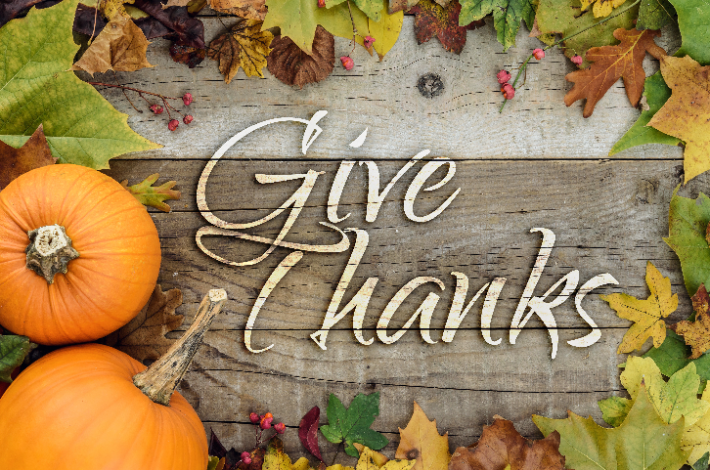
Imagine being told that you were going to be killed for a crime that you didn’t commit, a crime you couldn’t have committed because there was no way for you to have been there at the time. Imagine that you were told by the police that you’d be in jail simply for the color of your skin and that you were locked in a cell for thirty years, waiting for that final day.
For Anthony Ray Hinton, that’s not a horror story; that was his life. Hinton spent 30 years on death row for a crime he didn’t commit– in solitary confinement in a five-by-seven-foot cell. He was allowed one hour daily before being put back in his tiny cage.
It’s enough to make anyone despair, but not Hinton. He quickly became a friend and counselor to other inmates and the death row guards, many of whom begged Hinton’s attorney to get him out.
Eventually, the horror story had a happy ending. A unanimous Supreme Court ruling ordered his release, and he could walk free. But even when you’re on the outside, sometimes your mind stays in prison, in that dark place, in solitary confinement. This didn’t happen to Hinton, though. When interviewed on 60 Minutes, he was asked if he was angry at his captors, and he said… he forgave them all.
“But they took 30 years of your life – how can you not be angry?”
What we see here, how Mr. Hinton deals with his horrible experience, is the power of gratitude. Gratitude is how we can survive even the darkest times. It’s hard to feel gratitude in a loss season, but it’s there if we look for the seeds.
Gratitude is more than just saying thank you– that’s good manners. Instead, gratitude is a mindset. It’s about finding and appreciating the good in life, big and small. It’s opening your heart to blessings, no matter where they come from or how small they might be.
When you practice gratitude, you embrace the world and interact with love. You’re open to opportunities to learn and grow, and you appreciate the little things. You see your life and everybody in it as gifts.
Today, we will explore the power of gratitude and see how gratitude can improve one’s life and relationships.
The Science of Gratitude
There are many good reasons to practice gratitude, so let’s start with how it impacts your body. Psychologically, cultivating gratitude reduces stress and enhances overall happiness by shifting focus away from negative thoughts and fostering a more positive outlook. It strengthens mental resilience, helping individuals maintain optimism even in the face of challenges.
On a physical level, gratitude has been shown to lower blood pressure and improve sleep quality, contributing to better overall health. It can also boost immune function, making the body more resilient to illness.
It even impacts your brain’s function; gratitude activates brain regions associated with reward, motivation, and social connection, highlighting its profound impact on emotional and cognitive health. By regularly practicing gratitude, you can experience both emotional and physiological improvements that contribute to a healthier, happier life.
Gratitude’s Impact on Relationships
Expressing gratitude is vital in building stronger bonds between individuals by fostering trust and mutual respect. When people feel appreciated, they are more likely to open up and engage in meaningful interactions, which enhances communication and helps reduce the likelihood of conflicts. Gratitude creates an environment where everybody feels valued, leading to healthier and more harmonious relationships.
And don’t underestimate gratitude’s ripple effect! When one person expresses thanks, it inspires others to adopt the same mindset, spreading positivity throughout a community or workplace. This contagious quality of gratitude strengthens social connections and cultivates a culture of kindness and understanding, benefiting everyone involved.
Gratitude in Daily Life
Recognizing the everyday blessings in life is a powerful practice that helps cultivate gratitude and positivity. Often, we overlook the small yet meaningful moments that make life richer. Simple pleasures, like enjoying a sunny day, receiving a kind word from a friend, or savoring a quiet moment, can bring a sense of contentment and joy when we pause to appreciate them.
Additionally, recognizing and appreciating the efforts of others helps to strengthen relationships and create a sense of mutual respect and connection. Taking the time to notice these everyday blessings can make us more aware of the abundance in our lives and encourage a greater sense of gratitude.
Shifting perspective plays a crucial role in cultivating gratitude and resilience. By focusing on abundance rather than lack, we begin to see the wealth of opportunities, resources, and experiences we already have rather than fixating on what is missing.
This shift allows us to appreciate what we possess, whether our health, relationships, or personal strengths. And when we run into challenges, adopting a mindset of gratitude transforms these obstacles into opportunities for growth.
Instead of viewing setbacks as failures, we can reframe them as valuable lessons. This shift in perspective fosters a sense of gratitude and empowers us to approach life’s difficulties more optimistically and constructively.
Practical Ways to Cultivate Gratitude
So, how do we start practicing daily gratitude? It begins with the little things. Some people like to keep a gratitude journal, where they write down things they notice and are thankful for. Others list three things they’re grateful for as they start or end their day. These little moments of gratitude add up and help you shift your mindset to one open to appreciation.
It also pays off to express gratitude to others. Writing thank-you notes for kindness, acknowledging the nice things people do, and acknowledging what others do to support you bring about that ripple effect we discussed earlier! People will appreciate knowing you are thankful for them; they’ll feel valued and respected.
Incorporating mindfulness and reflection into your gratitude is also a good idea. When you practice mindful awareness to look for the good around you, you’re more likely to see it! The next time you have a quiet moment, reflect on something you’re thankful for. It doesn’t have to be significant. This practice will help you find more meaning and joy in the world.
Overcoming Challenges to Gratitude
Even if you practice gratitude, the world won’t always be sunny and rainbows. Navigating tough times with gratitude involves finding lessons in adversity and recognizing the growth that can come from challenging experiences.
Even in moments of hardship, there is often something to learn. You may gain resilience, deepen empathy, or develop new coping skills. Acknowledging and validating negative emotions is essential, as ignoring or suppressing them can be counterproductive.
However, gratitude doesn’t require us to dwell on these emotions; instead, it encourages us to shift our focus toward the positive aspects of our lives, even if they are small or subtle. This balanced approach allows us to honor our struggles without being overwhelmed. To avoid gratitude fatigue, you must ensure that gratitude practices remain authentic and meaningful.
Simply listing things we’re grateful for can feel superficial, so engaging in gratitude in a way that resonates with us is essential. This makes it a genuine and rewarding practice that nurtures our well-being rather than feeling like an obligation.
The Long-Term Benefits of Gratitude
Cultivating a grateful mindset through consistent practice profoundly impacts the brain, gradually rewiring it to focus on positivity. Studies show that regularly expressing gratitude activates neural pathways associated with happiness and well-being, making recognizing the good in everyday life easier. Over time, this shift in brain function helps to reduce negative thought patterns and increase overall life satisfaction.
By intentionally making gratitude a daily habit, you can strengthen your family’s capacity for joy and appreciation. This practice benefits personal well-being and creates a lasting legacy of gratitude.
When we embody gratitude, we set an example for those around us, inspiring our families, friends, and communities to adopt it as a core value. Bringing joy and gratitude to your family helps create an environment where gratitude becomes a shared way of life.
Bringing Gratitude Home
Gratitude is a mighty, empowering attitude that anybody can practice. When you look for and are thankful for the good in your life, you will reap the benefits for your mind, body, and relationships. And it’s so easy to get started. All you have to do is be mindful of life’s little joys and reach for the good. It’s there, and it’s waiting for you to find it.
To think about it another way, let’s go back to the story of Anthony Ray Hinton. In another interview, he said, “One does not know the value of freedom until it is taken away. People run out of the rain. I run into the rain…I am so grateful for every drop. To feel it on my face.” Even something as small as a raindrop can be a lesson in gratitude if you’re open to it.
How do you practice gratitude in your life? We’d love to hear your story in the comments– let’s get that ripple effect going! And for more inspiration and advice, check out the Support for Stepdads blog.
Happy Thanksgiving.





